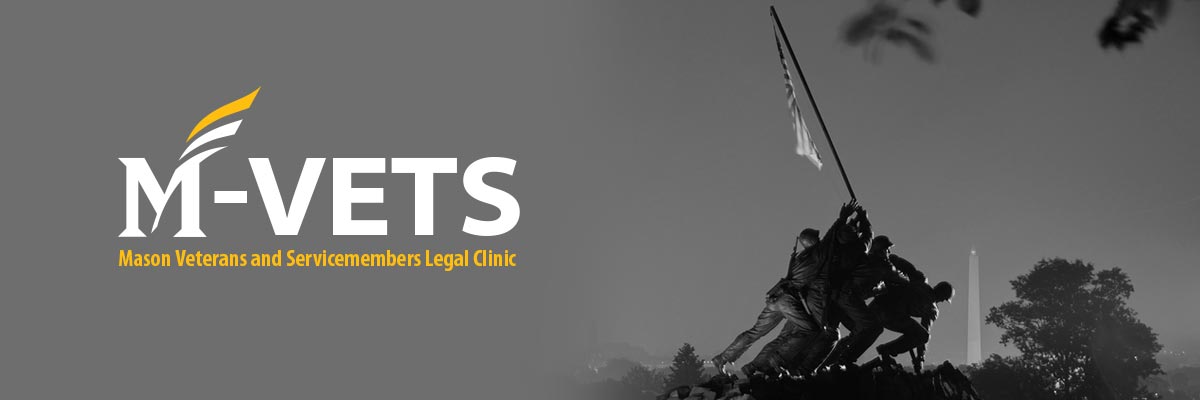
(Pictured: Curt Orshoski)
A 2014 claim for Post 9/11 GI Bill (“GI Bill”) benefits was finally granted at the 100% payment rate after nearly five years of litigation with the Department of Veterans Affairs (DVA). M-VETS successfully argued at a personal appearance hearing before the Board of Veterans’ Appeals (BVA) in D.C. for its client to receive GI Bill benefits at the 100% payment rate.
M-VETS represented a veteran who was medically retired from the United States Army due to service-connected disabilities sustained as a result of combat service in Iraq. The veteran was a member of the Virginia National Guard who mobilized and deployed to Iraq to serve as a linguist with a Special Forces Group from Fort Bragg, North Carolina.
While serving in Iraq, the veteran was physically and psychologically injured. The veteran returned to the United States and was placed on active duty medical hold while receiving treatment for the service-connected injuries. Subsequently, the veteran was referred to the Army Medical and Physical Evaluation Boards that found the veteran’s service-connected medical conditions rendered the veteran unable to further serve in the Army. The veteran was honorably discharged from active duty and permanently retired from the Army due to the service-connected disabilities.
Following the medical retirement from the Army, the veteran applied for educational benefits under the GI Bill and initially received a Certificate of Eligibility (“COE”) from the DVA for the receipt of benefits at the 100% payment rate. With this COE in-hand, the veteran was accepted admitted to a university outside of the United States and began attending classes. When the DVA received notice of the veteran’s enrollment at the university, the DVA determined the COE for the GI Bill at the 100% rate was erroneously issued. The DVA claimed the veteran was only entitled to the GI Bill at the 60% rate. After receiving this decision from the DVA, the veteran was forced to pay out of pocket for a portion of the educational expenses. Subsequently, the veteran filed an appeal to this decision and contacted M-VETS.
M-VETS Director, Timothy M. MacArthur, stated about the matter: “I’m glad the veteran reached out to M-VETS and that we were able to correct this issue. There are certain active duty time requirements that a soldier needs to meet in order to be eligible for the GI Bill at a certain rate. At first glance, the requirements are relatively straight forward, but when you start looking into Army Reserve and National Guard issues coupled with a medical retirement, the answers become harder to find.”
M-VETS filed a brief before the BVA and requested a personal appearance in order to argue the matter in front of a Judge. Prior to the BVA hearing, the DVA’s position was that the veteran had not accrued enough active duty time in service to receive the GI Bill at the 100% rate. Their position was based on the fact that a portion of the veteran’s active duty time was served while on medical hold orders for treatment of service-connected injuries. M-VETS agreed with the DVA assessment of the matter but argued that a statutory exception applied in this case.
At the BVA hearing, M-VETS argued that the veteran served 30 continuous days on active duty in the Armed Forces after September 11, 2001 and was discharged for a service-connected disability. As such, the veteran was entitled to GI Bill benefits at the 100% rate pursuant to 38 U.S.C.A. §3311(b)(2) and 38 U.S.C.A. §3313(c)(1).
Due to the lengthy process involved with litigating this issue, many M-VETS Student-Advisors (SAs) worked diligently on this matter while in the clinic. When the matter was scheduled for hearing in D.C., it was former M-VETS SA Curt Orshoski who argued the motion before the BVA. “Curt did a great job arguing the motion and presenting evidence during the hearing. Our client was able to fly to the United States to attend the hearing and Curt conducted an opening statement, direct examination, and a closing argument which greatly assisted the Judge in determining the favorable outcome for our client,” MacArthur said. “The DVA benefits process is paternalistic in nature which is invaluable for allowing our students to gain practical experience in a non-adversarial setting,” MacArthur continued. “This was a long process and fortunately our client was able to weather the storm financially to see this through. Going to school is expensive and our client received $22,285.52 from the DVA for reimbursement of out of pocket expenses for tuition. Our veteran should not have to pay another dime for educational costs moving forward,” MacArthur said.
M-VETS assists veterans, servicemembers, and their dependents in a variety of civil matters, including uncontested divorces, landlord/tenant matters, consumer protection and contract disputes, as well as in military/VA administrative matters, including MEB/PEBs, discharge upgrades, Boards for Correction of Military Records and VA disability compensation appeals.
